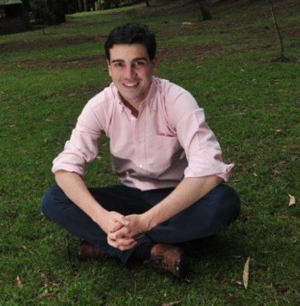Home
Focus Areas
About Us
"We need to do something, but first we need to measure to determine how much methane is produced."
That's the message from YangQuan Chen and his team of researchers at the University of California, Merced, who have received two $1 million grants as part of a larger $4 million package of climate change research grants from the university, the Merced Sun-Star reports.
Chen's work focuses on measuring methane in the environment, then reducing it by mixing manure with biochara charcoal-like material produced by burning organic matterand applying it to soil.
Other researchers are working on altering livestock feed to reduce the number of cow "burps" producedanother source of methane.
"We need to do something, but first we need to measure to determine how much methane is produced," Chen tells the Merced Sun-Star.
"Our work is starting to draw national and international attention."
A second $1 million grant was awarded to life and environmental sciences professor Rebecca Ryals, whose team is examining the use of compost as an equitable climate solution in the San Joaquin Valley.
Computer science and engineering professor Shijia Pan will use a $648,466 grant to develop an artificial intelligence-enabled low-cost and low-power sensor network to monitor multiple types of wildfire Read the Entire Article
Selected Grant News Headlines
A customized collection of grant news from foundations and the federal government from around the Web.
Noa Gerassi is executive director of the Lux Center, promoting Jewish-Catholic dialogue.Gerassi started The Equalizer in 2009 as a volunteer-run soccer team for Jerusalem boys at risk."I'm a very...more
The Service Above Self Program recognizes and celebrates the contributions of youth and youth groups in Rowan County through volunteer service.The program is supported by sponsors including...more
Core Transit receives state funding for one-year, youth fare-free program.Most travel on Core Transit is already fare- free thanks to the additional revenue generated by the Core Transit sales...more
If you've ever wished you could do more, there's a new organization out there for you. Mashable reports the Initiative for Strategic Volunteer Engagement (ISVE) has been purchased by Independent...more
The Australian of the Year award is given to the country's best and brightest, and this year's winners are an eclectic bunch. Among the winners: Fiction: "The Hate U Give" by Jacinta Barrett,...more
"We're approaching [AI regulation] by trying to be transparent," FCC Deputy Managing Director and Special Advisor to Chairwoman Jessica Rosenworcel Sanford Williams tells NBC Los Angeles. "AI...more
If you're looking for the perfect gift for your significant other this holiday season, we've got the perfect one for you: A one-of-a-kind pair of sequined, fur-lined, hand-painted shoes that will...more
Child care is a hot-button issue in California, where Democratic presidential candidate Kamala Harris says she wants to triple the Earned Income Tax Credit for working families to $3,600 per child,...more
When dental professor Maxine Strickland first started thinking about an invention for her students, she says she didn't think about being an inventor. "Honestly, I never really thought about...more
The American College of Community Health Physicians has released its annual list of top community health professionals, and there's one person who's definitely in the top five. That honor goes to...more
Youth News from...
Collaboratory
Community Foundation of Sarasota County
Community Foundation of the Fox River Valley
Gates Foundation
Gulf Coast Community Foundation
Manatee Community Foundation
Community Foundation Partnership
Marietta Community Foundation
Berrien Community Foundation
Parkersburg Area Community Foundation
Social Entrepreneurship
Spotlight
Colombian Social Entrepreneur Hopes to Shake and Change the World

Young at 24, Juan David Aristizabal Ospina is a social entrepreneur who founded Buena Nota, a platform that accentuates social entrepreneurs and citizens in Colombia making positive changes and raising awareness about social problems that need to be addressed.











